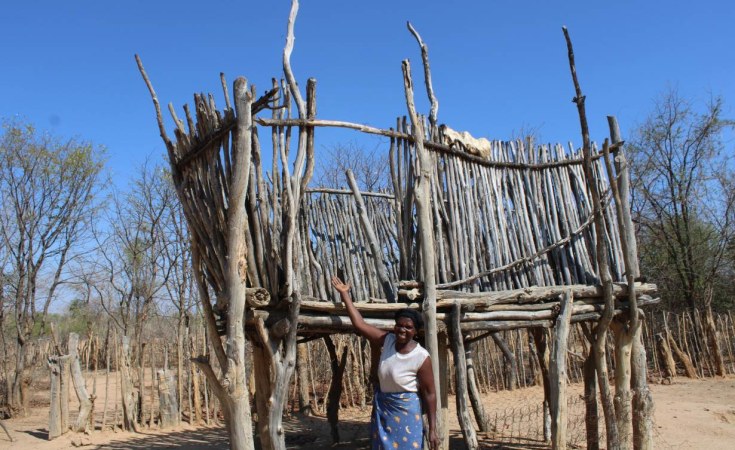Zimbabwean President Emmerson Mnangagwa is asking for $2 billion (€1.85 billion) in food aid to help milllions of people impacted by drought brought about by the El Nino weather pattern.
Zimbabwe declared a national disaster on Wednesday as the El Nino weather pattern continues to cause drought across southern Africa.
The declaration follows a similar move by Malawi late last month. Neighboring Zambia designated the regional drought a national disaster late in February.
What do we know about the drought in Zimbabwe?
President Emmerson Mnangagwa said that Zimbabwe needed $2 billion (€1.85 billion) in aid to help millions of people who are going hungry.
"No Zimbabwean must succumb or die from hunger," Mnangagwa told a press conference. "To that end, I do hereby declare a nationwide State of Disaster, due to the El Nino-induced drought."
He said that over 2.7 million people, or around a sixth of the country's population, have not had adequate access to food this year due to low yields produced during the drought.
Mnangagwa appealed to UN agencies, local businesses, and religious charity organizations to contribute to humanitarian assistance.
The World Food Organization (WFO) has already rolled out an assistance program for 2.7 million people in Zimbabwe from January to March.
More than 60% of Zimbabweans live in rural areas. Much of the country's rural population lives off subsistence farming, occasionally selling small surpluses.
Zimbabwe was once a major grain exporter, but has in recent years increasingly relied on aid agencies to avert famine.
What is El Nino?
El Nino is a naturally occurring and cyclical weather pattern that emerged in its latest phase in mid-2023.
The World Meteorological Organization (WMO) said that El Nino reached a peak in December but should still result in above-normal temperatures until May.
The Food and Agriculture Organization (FAO) said several countries in southern Africa--Malawi, Mozambique, Namibia, Zambia, and Zimbabwe--recorded below average rainfall during the summer in the southern hemisphere.
Higher temperatures and an "erratic" distribution of precipitation have worsened the situation.
sdi/lo (AFP, AP, Reuters)


